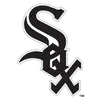
Game starts at 11:30 PM
 Diamondbacks
Diamondbacks White Sox
White SoxGame starts at 11:30 PM
 Diamondbacks
Diamondbacks White Sox
White Sox
Game starts at 11:30 PM
Game starts at 11:30 PM
 Diamondbacks
Diamondbacks White Sox
White Sox
Game starts at 11:30 PM
Game starts at 11:30 PM
 Diamondbacks
Diamondbacks White Sox
White Sox
Game starts at 11:30 PM
Game starts at 11:30 PM
 Diamondbacks
Diamondbacks White Sox
White Sox
Game starts at 11:30 PM
Game starts at 11:30 PM
 Diamondbacks
Diamondbacks White Sox
White SoxFull Schedule
6/23
11:30 pm
CHSN
6/24
11:30 pm
CHSN
6/25
6:00 pm
CHSN
6/27
11:30 pm
CHSN
6/28
8:00 pm
CHSN
6/29
6:00 pm
CHSN
7/2
2:00 am
CHSN
7/3
2:00 am
CHSN
7/4
2:00 am
CHSN
7/5
12:00 am
CHSN
7/6
1:00 am
CHSN
7/6
7:00 pm
CHSN
7/7
11:30 pm
CHSN
7/8
11:30 pm
CHSN
7/9
6:00 pm
CHSN
7/10
11:30 pm
CHSN
7/12
12:00 am
CHSN
7/12
8:00 pm
CHSN
7/13
6:00 pm
CHSN
7/18
10:30 pm
CHSN
7/19
10:30 pm
CHSN
7/20
5:30 pm
CHSN
7/21
11:30 pm
CHSN
7/22
11:30 pm
CHSN
7/23
11:30 pm
CHSN
7/25
11:30 pm
CHSN
7/26
11:00 pm
CHSN
7/27
6:00 pm
CHSN
7/28
11:30 pm
CHSN
7/29
11:30 pm
CHSN
7/30
6:00 pm
CHSN
8/2
1:30 am
CHSN
8/3
2:00 am
CHSN
8/3
8:00 pm
CHSN
8/6
1:30 am
CHSN
8/7
1:30 am
CHSN
8/7
8:00 pm
CHSN
8/8
11:30 pm
CHSN
8/9
11:00 pm
CHSN
8/10
6:00 pm
CHSN
8/11
11:30 pm
CHSN
8/12
11:30 pm
CHSN
8/13
6:00 pm
CHSN
8/16
12:00 am
CHSN
8/16
11:00 pm
CHSN
8/17
6:00 pm
CHSN
8/18
11:00 pm
CHSN
8/19
11:00 pm
CHSN
8/20
11:00 pm
CHSN
8/22
11:30 pm
CHSN







